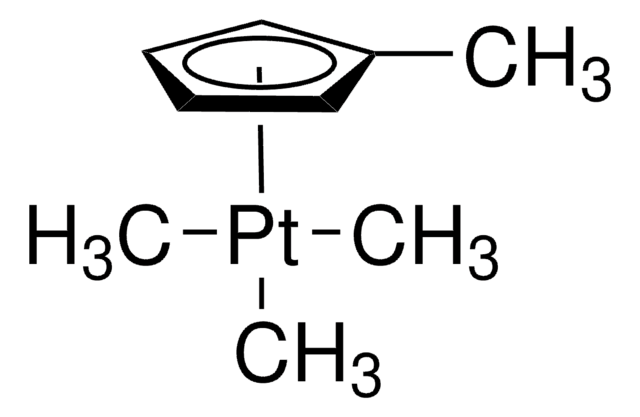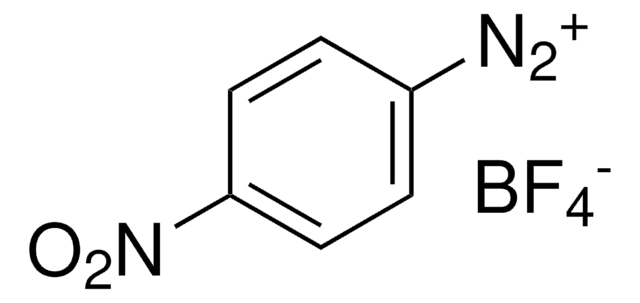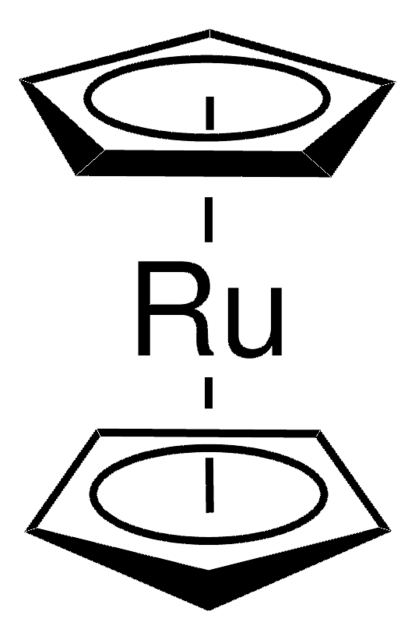697540
Trimethyl(methylcyclopentadienyl)platinum(IV)
packaged for use in deposition systems
Synonym(s):
MeCpPtMe3
About This Item
Recommended Products
form
low-melting solid
reaction suitability
core: platinum
reagent type: catalyst
mp
30-31 °C (lit.)
storage temp.
2-8°C
SMILES string
C[Pt](C)C.C[C]1[CH][CH][CH][CH]1
InChI
1S/C6H7.3CH3.Pt/c1-6-4-2-3-5-6;;;;/h2,4H,3H2,1H3;3*1H3;
InChI key
AGQKROMSWCHOND-UHFFFAOYSA-N
Looking for similar products? Visit Product Comparison Guide
General description
Application
- As a precursor to prepare Pt nanoparticles. It helps in tuning the particle size for better activity and stability of the Pt catalyst.
- To fabricate cathodes for solid acid fuel cells with high activity and excellent stability.
- To prepare triple helical nanowires(THN) for advanced nanophotonics.
- To fabricate Pt current collectors for electrodes of asymmetric V2O5–SnO2 nanopore battery.
- As a precursor for synthesis of Platinum catalystwith high loadings of uniform-sized, 1−2 nm Ptnanoparticles on high surface area Al2O3, TiO2, and SrTiO3 supports. The synthesis ofcatalytic nanoparticles via ALD is a compelling technique for creatinginnovative and useful catalysts.
Signal Word
Danger
Hazard Statements
Precautionary Statements
Hazard Classifications
Acute Tox. 1 Oral - Acute Tox. 2 Dermal - Aquatic Acute 1 - Skin Sens. 1
Storage Class Code
6.1A - Combustible acute toxic Cat. 1 and 2 / very toxic hazardous materials
WGK
WGK 3
Personal Protective Equipment
Certificates of Analysis (COA)
Search for Certificates of Analysis (COA) by entering the products Lot/Batch Number. Lot and Batch Numbers can be found on a product’s label following the words ‘Lot’ or ‘Batch’.
Already Own This Product?
Find documentation for the products that you have recently purchased in the Document Library.
Customers Also Viewed
Articles
Atomic Layer Deposition (ALD) technology ensures uniform coating on complex 3D surfaces with precise chemisorption cycles.
Nanocomposite Coatings with Tunable Properties Prepared by Atomic Layer Deposition
Continuous efficiency improvements in photovoltaic devices result from material advancements and manufacturing innovation.
Thin film photovoltaic devices have become increasingly important in efficiently harnessing solar energy to meet consumer demand.
Our team of scientists has experience in all areas of research including Life Science, Material Science, Chemical Synthesis, Chromatography, Analytical and many others.
Contact Technical Service












